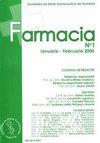求助PDF
{"title":"一线医护人员对新冠肺炎疫苗接种的认识","authors":"Raluca Elisabeta Lupaşcu Moisi","doi":"10.31925/farmacia.2023.2.25","DOIUrl":null,"url":null,"abstract":"Emerging infectious diseases (EIDs) and their determinants are attracting increasing attention from scientists, with approximately 75% of EIDs being zoonotic. Among these pathogens are viruses belonging to the Coronaviridae family. Until 2002, CoVs were primarily studied for scientific or veterinary purposes. However, the world's view on the virulence of CoVs changed in 2002 when a zoonotic betacoronavirus named SARS-CoV appeared in southern China and caused a global epidemic with over 8,000 cases. Ten years later, in the Middle East, another zoonotic betacoronavirus, MERS-CoV, emerged and caused 2,521 cases. A new highly contagious CoV named Severe Acute Respiratory Syndrome Coronavirus 2 (SARS-CoV-2) emerged in 2019, causing the largest pandemic of the modern era known as coronavirus disease 2019 (COVID-19). Vaccination is one of the most effective methods to reduce the risk of severe illness, hospitalization, and death. The main objective of the study was to evaluate the acceptability of the COVID-19 vaccine among healthcare workers, describe the main adverse reactions, and identify the need for medication administration based on the severity of the adverse reactions manifested.Copyright © 2023, Romanian Society for Pharmaceutical Sciences. All rights reserved.","PeriodicalId":12344,"journal":{"name":"FARMACIA","volume":" ","pages":""},"PeriodicalIF":1.4000,"publicationDate":"2023-04-27","publicationTypes":"Journal Article","fieldsOfStudy":null,"isOpenAccess":false,"openAccessPdf":"","citationCount":"0","resultStr":"{\"title\":\"PERCEPTIONS OF FRONTLINE HEALTHCARE PROFESSIONALS ON COVID-19 VACCINATION\",\"authors\":\"Raluca Elisabeta Lupaşcu Moisi\",\"doi\":\"10.31925/farmacia.2023.2.25\",\"DOIUrl\":null,\"url\":null,\"abstract\":\"Emerging infectious diseases (EIDs) and their determinants are attracting increasing attention from scientists, with approximately 75% of EIDs being zoonotic. Among these pathogens are viruses belonging to the Coronaviridae family. Until 2002, CoVs were primarily studied for scientific or veterinary purposes. However, the world's view on the virulence of CoVs changed in 2002 when a zoonotic betacoronavirus named SARS-CoV appeared in southern China and caused a global epidemic with over 8,000 cases. Ten years later, in the Middle East, another zoonotic betacoronavirus, MERS-CoV, emerged and caused 2,521 cases. A new highly contagious CoV named Severe Acute Respiratory Syndrome Coronavirus 2 (SARS-CoV-2) emerged in 2019, causing the largest pandemic of the modern era known as coronavirus disease 2019 (COVID-19). Vaccination is one of the most effective methods to reduce the risk of severe illness, hospitalization, and death. The main objective of the study was to evaluate the acceptability of the COVID-19 vaccine among healthcare workers, describe the main adverse reactions, and identify the need for medication administration based on the severity of the adverse reactions manifested.Copyright © 2023, Romanian Society for Pharmaceutical Sciences. All rights reserved.\",\"PeriodicalId\":12344,\"journal\":{\"name\":\"FARMACIA\",\"volume\":\" \",\"pages\":\"\"},\"PeriodicalIF\":1.4000,\"publicationDate\":\"2023-04-27\",\"publicationTypes\":\"Journal Article\",\"fieldsOfStudy\":null,\"isOpenAccess\":false,\"openAccessPdf\":\"\",\"citationCount\":\"0\",\"resultStr\":null,\"platform\":\"Semanticscholar\",\"paperid\":null,\"PeriodicalName\":\"FARMACIA\",\"FirstCategoryId\":\"3\",\"ListUrlMain\":\"https://doi.org/10.31925/farmacia.2023.2.25\",\"RegionNum\":4,\"RegionCategory\":\"医学\",\"ArticlePicture\":[],\"TitleCN\":null,\"AbstractTextCN\":null,\"PMCID\":null,\"EPubDate\":\"\",\"PubModel\":\"\",\"JCR\":\"Q4\",\"JCRName\":\"PHARMACOLOGY & PHARMACY\",\"Score\":null,\"Total\":0}","platform":"Semanticscholar","paperid":null,"PeriodicalName":"FARMACIA","FirstCategoryId":"3","ListUrlMain":"https://doi.org/10.31925/farmacia.2023.2.25","RegionNum":4,"RegionCategory":"医学","ArticlePicture":[],"TitleCN":null,"AbstractTextCN":null,"PMCID":null,"EPubDate":"","PubModel":"","JCR":"Q4","JCRName":"PHARMACOLOGY & PHARMACY","Score":null,"Total":0}
引用次数: 0
引用
批量引用
PERCEPTIONS OF FRONTLINE HEALTHCARE PROFESSIONALS ON COVID-19 VACCINATION
Emerging infectious diseases (EIDs) and their determinants are attracting increasing attention from scientists, with approximately 75% of EIDs being zoonotic. Among these pathogens are viruses belonging to the Coronaviridae family. Until 2002, CoVs were primarily studied for scientific or veterinary purposes. However, the world's view on the virulence of CoVs changed in 2002 when a zoonotic betacoronavirus named SARS-CoV appeared in southern China and caused a global epidemic with over 8,000 cases. Ten years later, in the Middle East, another zoonotic betacoronavirus, MERS-CoV, emerged and caused 2,521 cases. A new highly contagious CoV named Severe Acute Respiratory Syndrome Coronavirus 2 (SARS-CoV-2) emerged in 2019, causing the largest pandemic of the modern era known as coronavirus disease 2019 (COVID-19). Vaccination is one of the most effective methods to reduce the risk of severe illness, hospitalization, and death. The main objective of the study was to evaluate the acceptability of the COVID-19 vaccine among healthcare workers, describe the main adverse reactions, and identify the need for medication administration based on the severity of the adverse reactions manifested.Copyright © 2023, Romanian Society for Pharmaceutical Sciences. All rights reserved.


